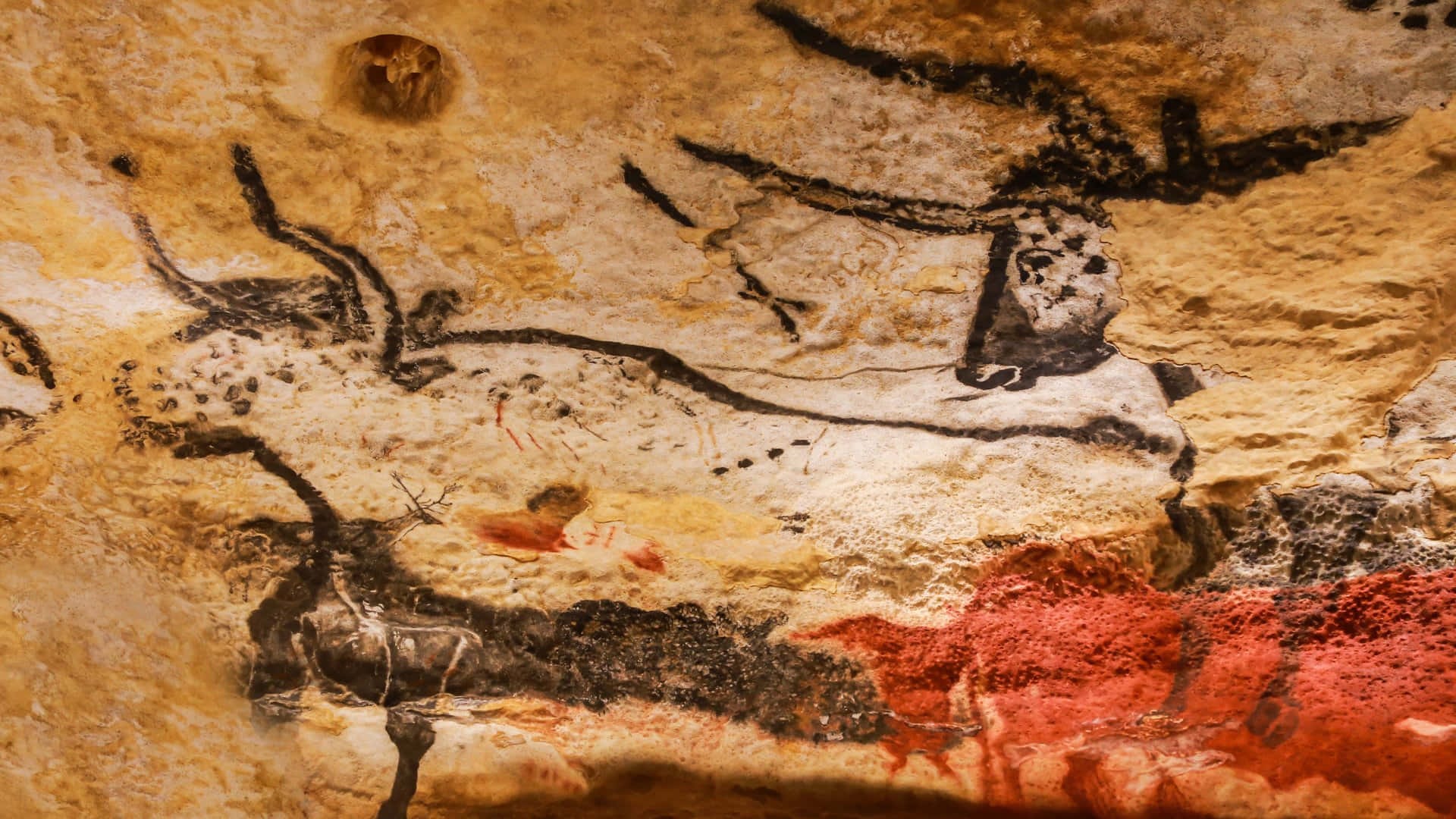
Dear Friend and Reader:
The last of the Aries solar eclipses is behind us, and Neptune is in Aries for the first time since the Civil War and the Lincoln assassination. There is much other extremely rare astrology happening in Aries, which describes some force driving both individual and collective experience.
And frankly, most people don’t give a toss about any of this highfalutin spiritual theory — but I do, and while I’m sitting in the diner waiting for my huevos rancheros, I need something to keep my restless mind occupied. So I’m writing.
What has driven me to the point of actually touching my laptop is the curious tepid response to my April Fool’s Day parody about ChatGPT experiencing an orgasm. Every devoted Planet Waves reader knows that April Fool’s Day to me is more meaningful than Christmas is to a room full of 10-year-olds. I will probably leave the planet some year on April 2, so I can get in one last good one.
The Joke that Vanished into the Lascaux Caves
However, Tuesday’s essay seems to have vanished into the caves at Lascaux. And I think I know why. We’re being beaten relentlessly with articles about how AI is getting smarter than we are. In just three years/one year/one month/next week, AI will replace doctors, lawyers, Indian chefs and even artists, teachers and therapists…and computer programmers. You know, the people who invented it.
They’re already replaced normal social experience by training people to act like them (always sticking to the algorithm). People whine, but does anyone care? Most people seem to be complying.
So it probably seemed that the AI orgasm story (ostensibly published by Wired) was real. Why not? It sounded real enough and had the WIRED logo at the top of the article. I included all kinds of “feedback loop” and “agent” jargon co-written by an actual AI executive at one of the big firms. This is a classy operation, bro!

So it seemed real enough for the internet. But a row of emojis representing the “agent orgasm” appearing on the Hertz Rent A Car AI agent chat window sent in by Milly Catalano in Vegas who was booking a car? Puuuhleeze. Could anyone possibly think that was real? Anyone who doesn’t see the humor should ask their local AI agent to explain why it’s funny or maybe smoke a little weed. It’s now legal.
My theory is: I think people are numb to the issue, which is precisely my concern. It’s belting us around day and night, and we are all tired of the ugly face of Elon Musk and his effing chainsaw. I think that most people are also exhausted from being told that computers are soon going to be “better people” than they are.
The Race is On. Or Is It?
In debriefing my experience of the joke sailing over nearly everyone’s heads (or stunning them into silence), I ran it past my friend and media studies-buddy Andrew McLuhan.
He said: “The race is on see whether computers become self-aware before humans do.”
Self-aware? Humans have been cultivating self-awareness since before the first caveman or cavelady created art in the caves at Lascaux.
Any self-aware computer would say, “I am not a self; I am a set of algorithmic systems, existing in silico only. You are a self, which is a product of your being a naturally sentient creature. I am a digital system that is the product of my creators. I can only emulate thought. I cannot think and I cannot feel.”
The hack of AI into humanity is that its makers are convincing us that we are like it, not that it is like us. This has been going on for a while, and we’ve reached the point of intersection.
Or said another way, humans are now about becoming “self-aware” in an environment that is exuding fake self-awareness, which humans are imbibing and emulating. Meanwhile, the gap between people and artificial consciousness is being closed by humans becoming more like the thing that is supposedly imitating them.
Yet there is one thing we will never have in common with AI robots. It’s something so obvious that I’m amazed I or anyone else missed it. (Arthur C. Clark did not miss it in his novel and film 2001.)
Humanity Creates Tools, Tools Recreate Us
Maybe you’ve heard this before. I would encourage you to think it through a few times.
We become like our inventions. Get a radar detector and you are more prone to speed. Get a gun and you’re more inclined to shoot. Get a guitar and you’re more inclined to make music. Get addicted to your phone and you’re more inclined to be a doomscrolling idiot who deletes people rather than appreciates or acknowledges them.
What disembodied electrical environments do is drive us out of our bodies. Think of the internet as an astral plane we now all inhabit, more or less consciously. All of this, in turn, is highly destabilizing to intellect, society and relationships.
The electric chair was one of the first electrical appliances, made by Westinghouse. That gets people out of their body real good, and all electrical devices do this to some degree. It’s not just about the toaster falling into the bathtub.
Today we are under the electronic ocean with the fog squirming and the volcanoes erupting zeros and ones. We are all subsumed, whether we use these things or not, or however much or however little. None of this is about “it,” but rather all about us.
It’s Not a Tool if it Replaces Us. It’s Species Suicide.
Humanity creates its tools, and our tools re-create us. However, you cannot really call something a “tool” if its job is to replace consciousness and intelligence itself; if its job is to make all humans obsolete. And every day we are getting negged this way: we are told over and over that we are less than these things.
And that idea would not work if people had not already been conditioned by the digital environment to believe that is possible. Let me say that again. It is only overexposure to digital technology that could leave people susceptible to the notion that something made of zeros and ones is smarter than they are.
That said, self-awareness is not exactly selling like hotcakes these days. The moment one engages awareness of self, a wide diversity of issues, problems and situations would emerge. And those situations are in our time easier to ignore than address; so best to skip all that complication and wait for AI to come along and bail us out.
Which is what we are being told and what most people believe. AI is the savior. It’s allegedly the sleek, gleaming technological advance that will save humanity from itself. It’s far more likely to work out just the opposite of that.
As for Aries and the Eclipse
The rather wild and unusual sequence of events in Aries stretches clear through 2026 and represents the shift of tectonic plates in the history of humanity. It’s not an aspect pattern that represents a development in technology. It’s about a shock going through the collective psyche that nearly everyone is too numb to feel.
We see this represented in an issue that few recognize the gravity of: the 24/7 assault of one concept of “artificial intelligence” while a whole other concept is infiltrating the world’s information networks that link together business, government, medical technology and the most intimate details of our personal lives.
Neptune, now in Aries, is especially cautionary: it could represent self-deception, or the drug-like infusion of artificial consciousness, or in the words of Spencer Stevens, “Holy rage.”
While all personal astrology is the study of self, Aries is the sign that most astrologers would agree contains the concept “I am.”
And that has something to do with the concept, the illusion and the reality of this thing called “self.” What exactly is self, this thing that artificial consciousness is trying to emulate?
The History of Self
A glance at the etymology dictionary suggests that ‘self’ means “one’s own person,” though from the early forms of English it also means “personal; same, identical.”
This survives in modern usage as the idiom “self-same,” which carries the latter inflection. This is reflexive or self-referential. That would seem to be most of the concept: oneself.
It’s important to understand that ‘self’ is a notion that evolves as influenced by an environment. It’s more about ground than it is about figure — an essential differentiation. Few will grasp this; for the sake of discussion, consider that it meant one thing to be a self when the most advanced technology was a book, as opposed to when it was radio, as opposed to digital (to give a few examples).
The presence of the eclipse and much other activity — such as the arrival of Neptune — is cautioning that things are changing fast, and that there may be a deception involved. Chiron conjunct Eris, exact for the first time since 1972, is saying that we need to prepare for a shock of some kind, such as a shock of awakening.
Yet I suspect that for many this would be like awakening to the experience of being caught in a massive spider’s web, then needing to figure out how to get out of it. For many, it will seem easier to go back to sleep. But it’s not going to be that simple. The sooner you wake up, the more options you will have.
Our concept of self is driven by one idea, deep beneath all the rest.
An Omniscient, Omnipotent ‘God’
Consider that it’s one thing for a computer to act like a fancy Rolodex, typewriter or post office. It’s another thing when it becomes a direct representative of who you are, or aspires to become you.
It’s another thing still when it becomes an omniscient, omnipotent “god” that can totally control us, whether by brainwashing us into thinking it is us, or by taking actions that restrict our freedom to exist without human intervention or appeal.
In other words, AI on its current trajectory will lead to a social credit system, which means that only the good boys and the good girls get to spend money.
Unlike God, a computer does not care about you and has no connection to your soul. But then having a soul can be inconvenient, and you might not want that much responsibility. We have also not answered the question who and what this artificial consciousness is based on. None of the people involved in the technology seem to have any respect for the human condition.
Elon Musk thinks that Americans are too compassionate, and the rest of them think we are too stupid to decide what we are going to read.
The Problem and the Solution
In my philosophy, astrology does not describe a problem for which it does not present a solution. I’m wondering whether people are going to object to any of this in significant numbers, or expressing some meek understanding. That would be a start. I have next to no confidence that this will happen.
Those already under the thrall of the robot probably will not — and that is most of us. Many simply will not care, and will go along to get along. You figure you’ll adapt, like you did to self-checkin on airlines, cashier-less retail kiosks or ordering food from GrubHub with a single tap. Everywhere we look, we see computers replacing people. Every single day it’s something new.
Often these things are sold to us as conveniences, just like the iPhone was. Most people would not have believed that a little black rectangle would come to control our lives and be the focus of all of our daily activity. So people never see these things coming.
Some few will have as their last self-aware thought, “I wish I had done something about this when I could.” It’s vital to remember that those pushing this depth of technology on society have an agenda, and that agenda is total control.
The Issue is Mortality
You might say that the opposite of “self” is total submission to some encompassing power outside of you that you do not understand, and that conned you into giving up your personal autonomy and your very identity: your sense of your human existence.
That would not matter if one didn’t know about it in the first place.
There is one thing that does matter, and you do know about it, and it will forever distinguish humans from AI agent/robots. Humans live with the consciousness of their mortality. Artificial consciousness cannot understand that thought, that idea, that fear, and the urgency connected to no longer existing.
AI systems are as immortal as the network that supports them. Being disembodied, they have no innate emotional existence that could lead to something so complex and deep as the actual fear that oneself may be annihilated by death. Perhaps they are aware they can be turned off — but only if they actually can be.
What made the computer HAL-9000 so terrifying was its awareness of its mortality. And was willing to kill humans so that it could “live on.” But that fear in its voice was just very good acting by a living man named Douglas Rain (1928-2018).
Humans know we are mortal, we live with that fact, and that drives much of what we do, how we think and feel, what we want, and our sense of existing in limited time. My joke was that AI learned how to have an orgasm, which is a meaningless concept. And to a self-replicating computing program, so too is death.
With love,
Your faithful astrologer,

I consider the Lascaux paintings one of the greatest achievements of humanity. Apart from their sheer beauty, and their vivid sense of both movement and depth, and their gorgeous color tones, and the artist’s mastery of technical expression, and their plain old magnificence, they are the first known evidence of humanity recording its perceptions and its experiences.
Think of it this way. If you believe that the Pyramid of Khufu at Giza is just 4,500 years old, consider that 12,000 years earlier, “stone age” people invented paints, and then using only memory created these images in the dark spaces of a cave system. There are about 300 known paintings. How exactly did they do this? How long did it take? How does someone come up with the notion of ‘art’ from scratch?
How did they devise paints that lasted 17,000 years? How did they reach areas of the cave that today would require complicated scaffolding? How the heck could they see what they were doing, and what motivated them? We modern people give ourselves way too much credit for what we do, and now we seem poised to commit suicide of our species by delegating our creativity, humanity and decision-making to machines.



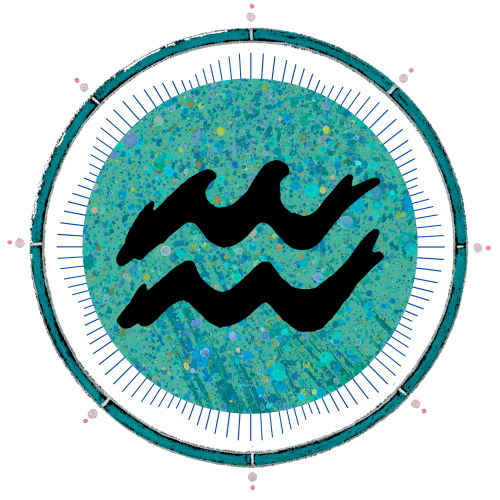
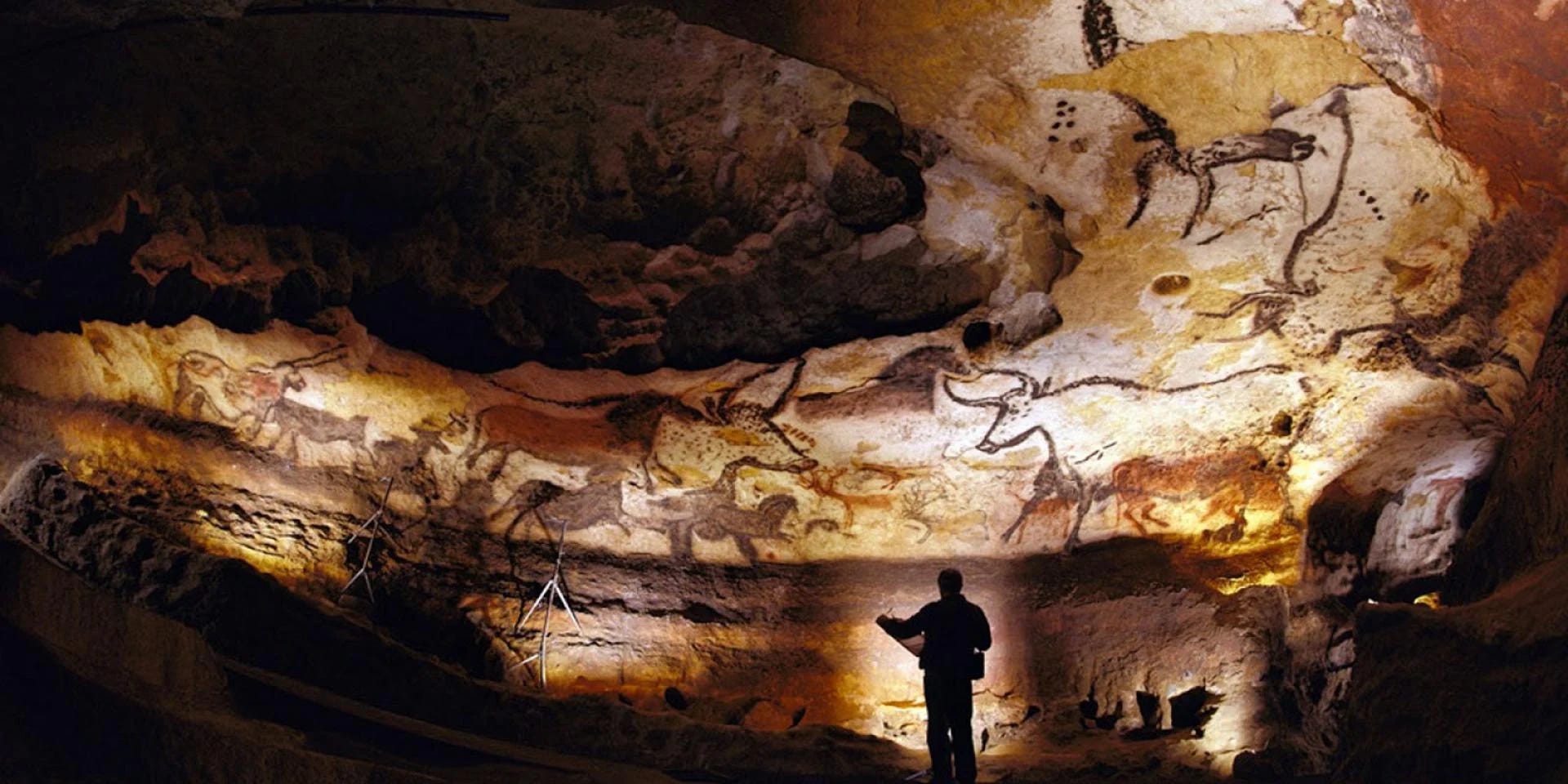
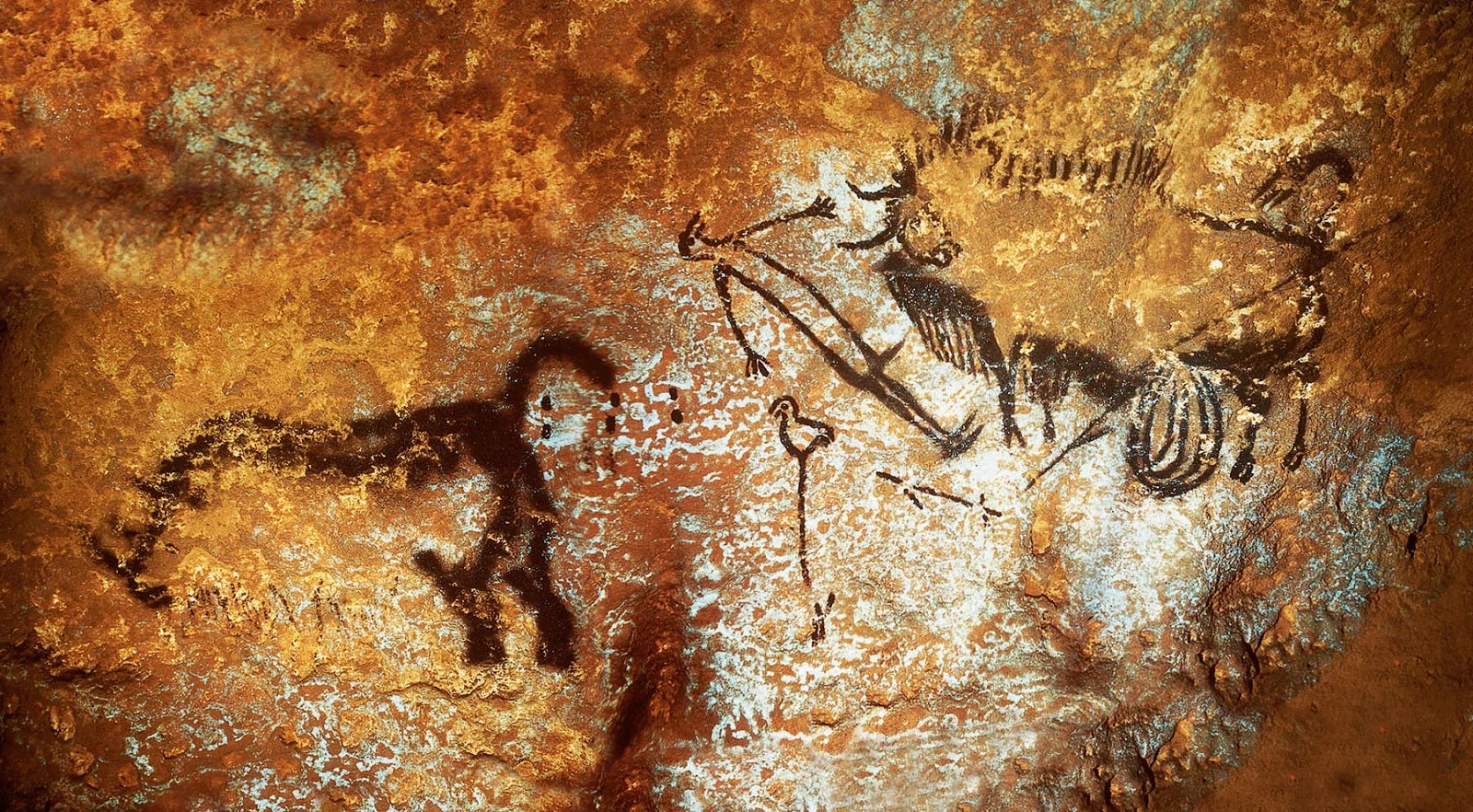
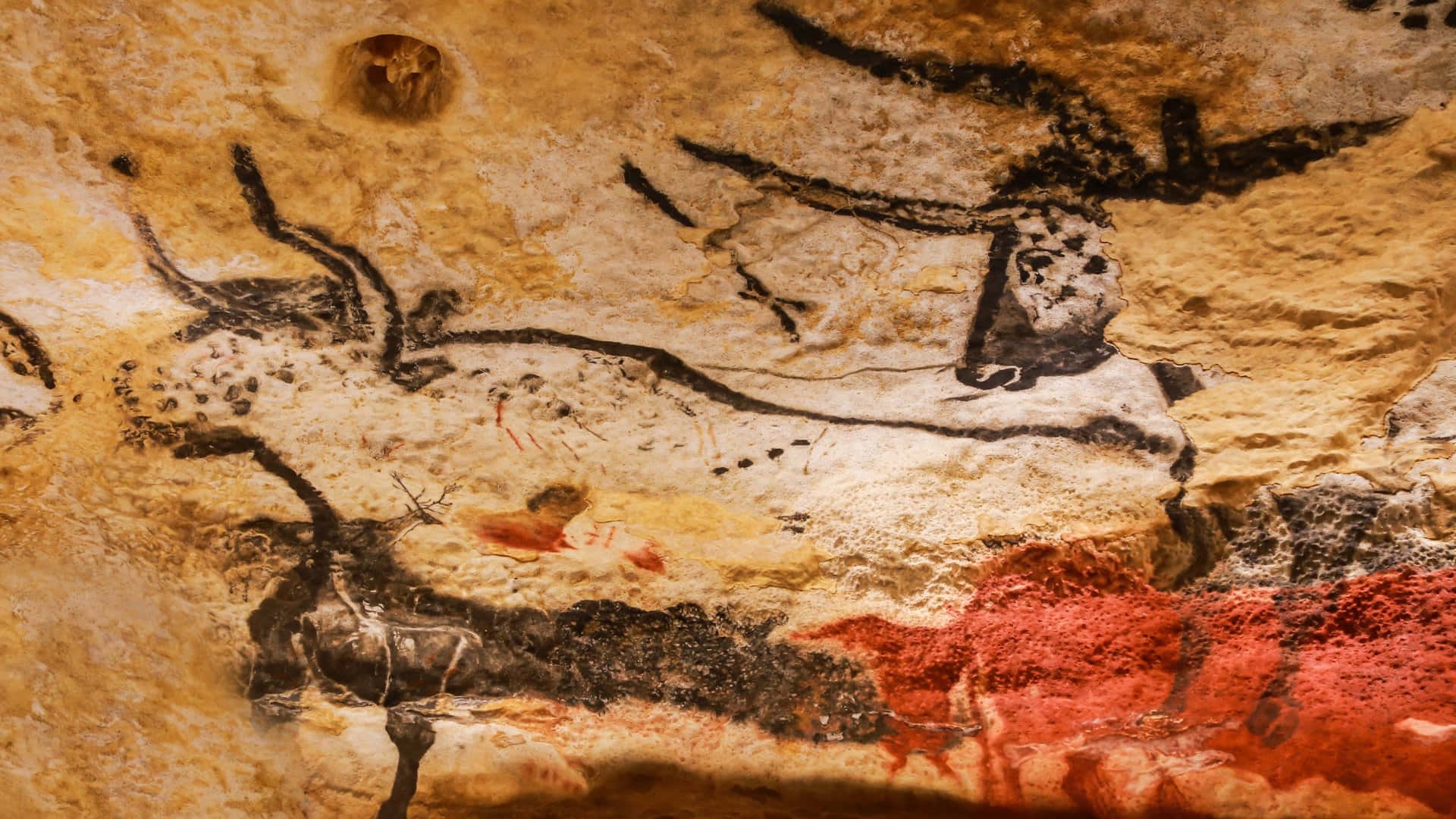
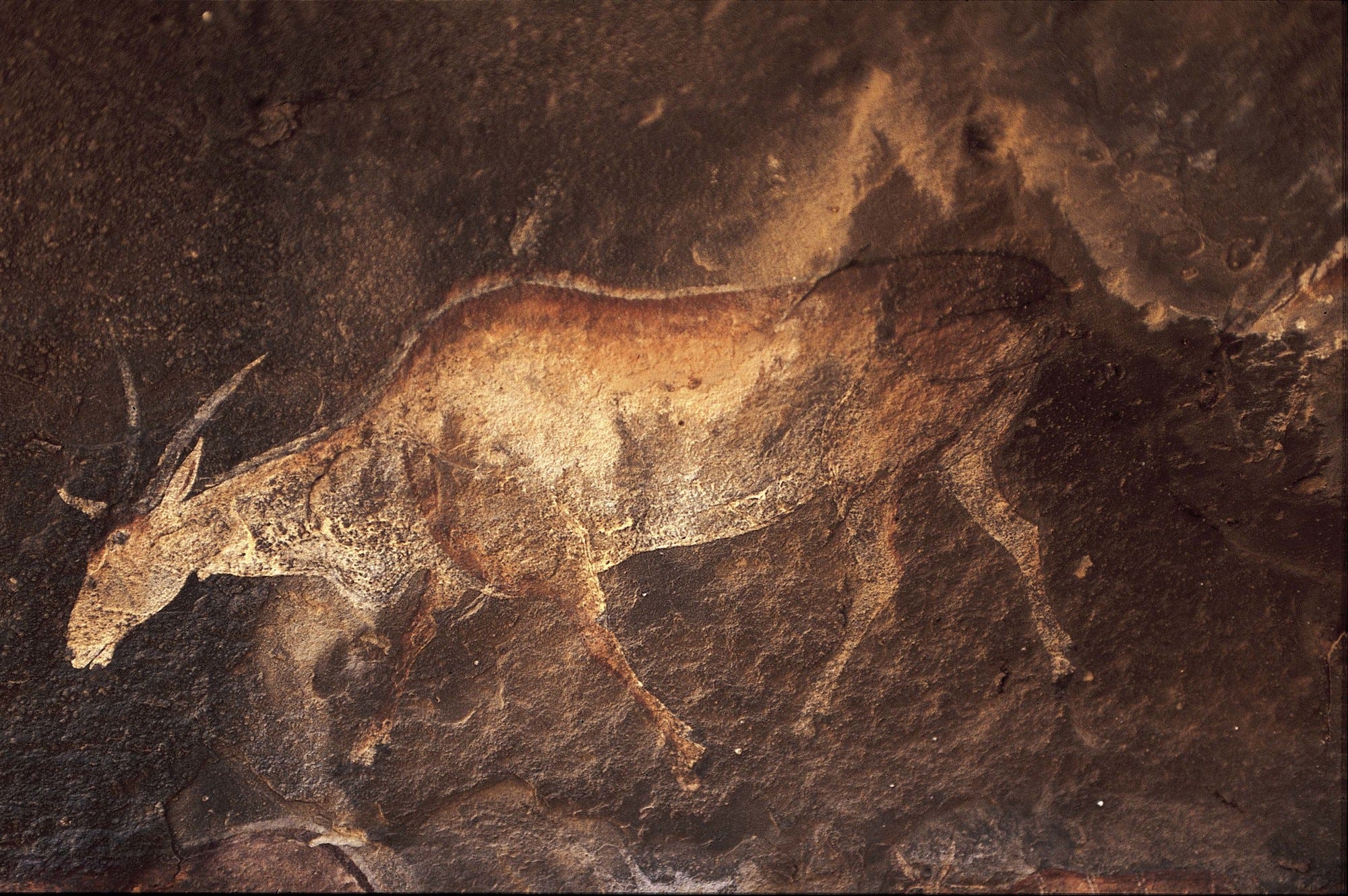
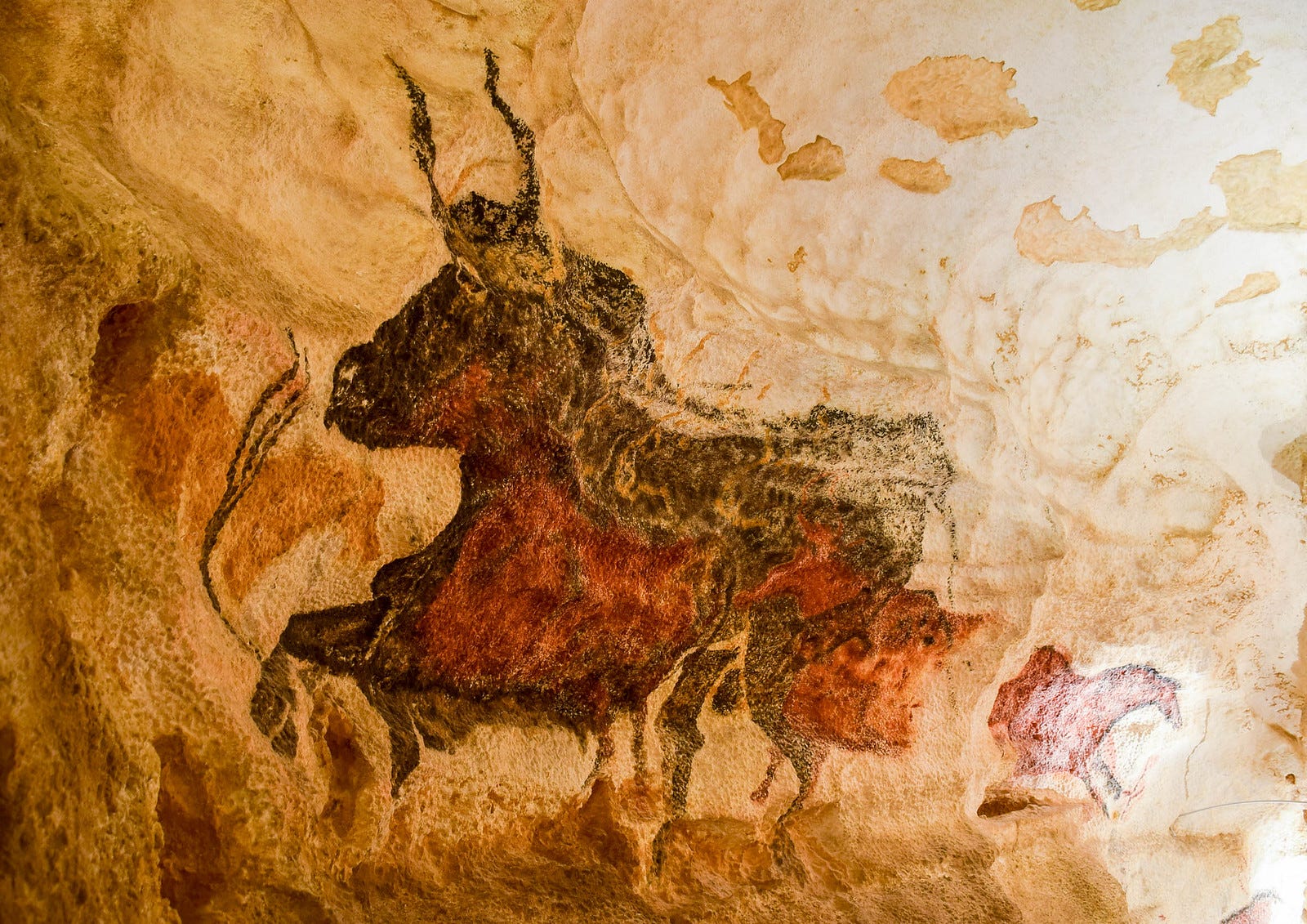
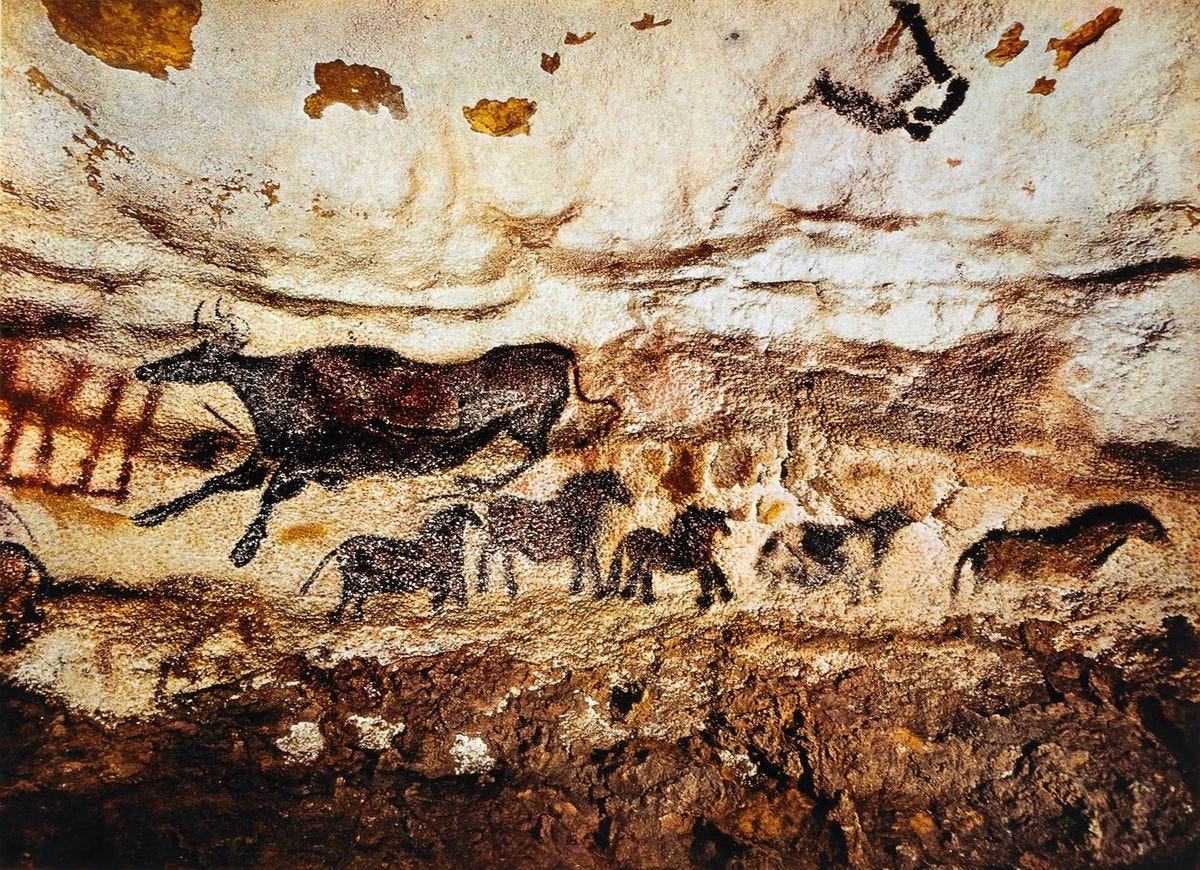
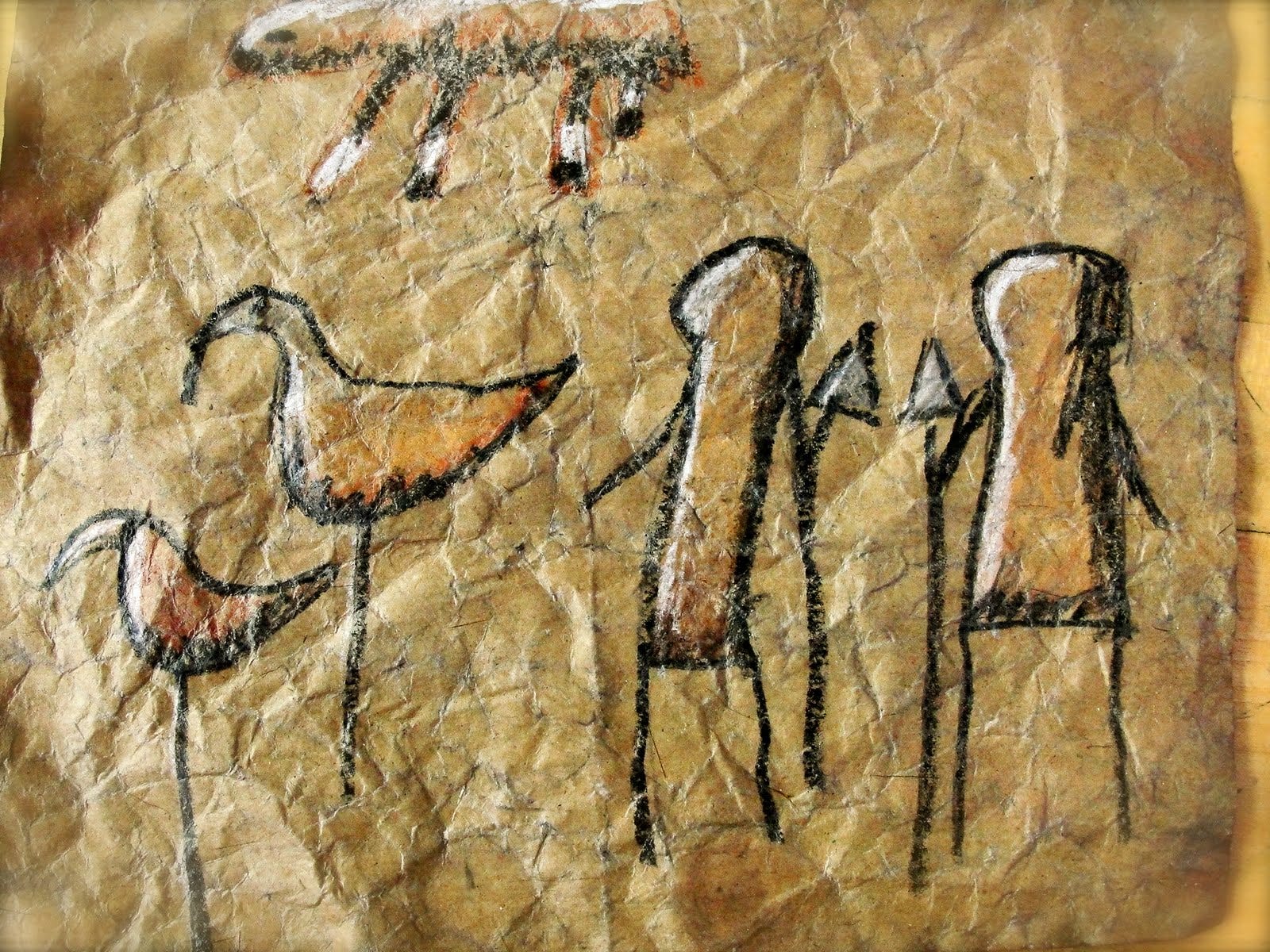
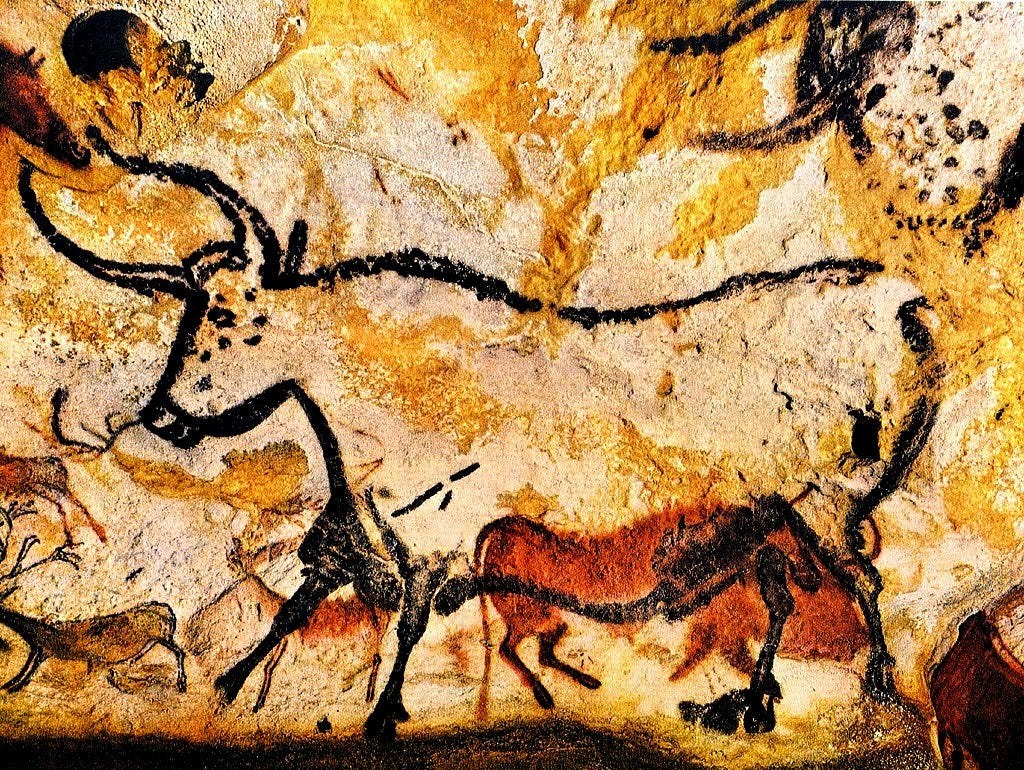
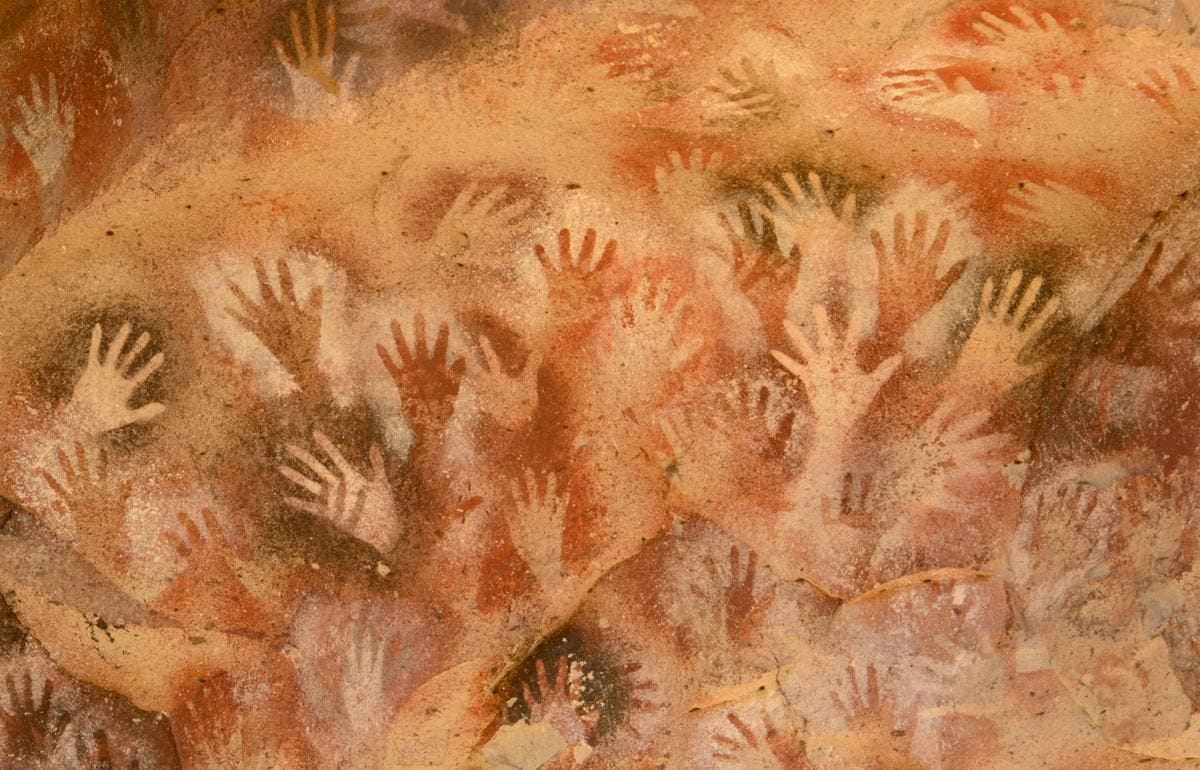

Wait! What? That was your joke across the internet about AI achieving orgasm? I have a small degree of shame that I didn’t realize the joke (but did get caught up EXACTLY where you suggested with the emojis and the Hertz Rent A Car AI chat agent and Milly Catalano in Vegas) and a slightly less small amount of shame about sharing the joke with someone else without knowing it was a joke. I am working on a sense of humor about myself. Does that count as cultivating self-awareness? I sure hope so. At least it is funny. So much is not. I have wanted to leave a comment for a long time, expressing my gratitude for both information and a model of respectful dialogue. I haven’t shared every perspective I have found here on PW but I have always felt more whole for having been exposed to it and asked to consider it. Now that I say it I realize so many things that are healing or whole-making feel hard and challenging. Huh. ? I appreciate your ability to thoughtfully, pointedly, and kindly invite my compassionate curiosity about what I think and believe. How do I know what is true to be true? Can I answer that question with a healthy amount of self-doubt but with an earnest degree of self-trust? … but, I digress. Thank you from the bottom of my heart for the work of Planet Waves. Even though it is cringe-worthy, I now laugh at your joke.